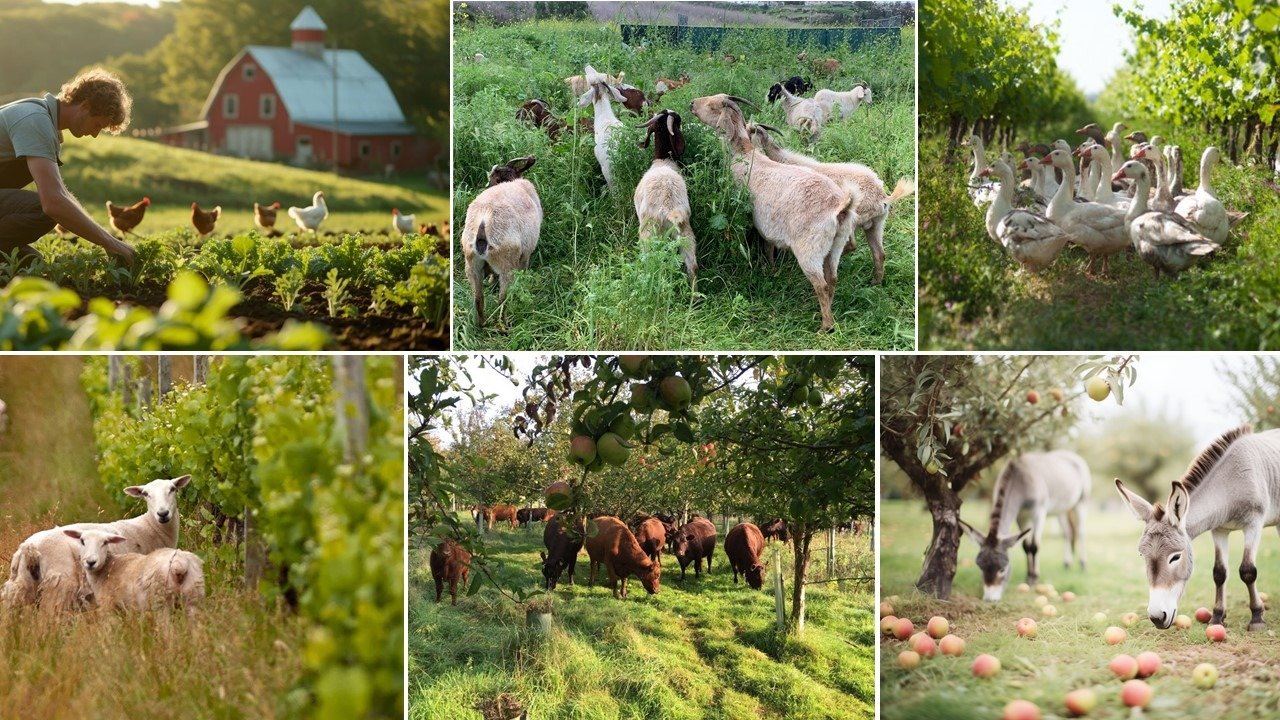
Prevention & Treatment of Physical & Mental Diseases with Living Nutrition
Prevention & Treatment of Physical & Mental Diseases with Living Nutrition *Healing with living foods insights from recent research In recent years, the Evolved Living

Dr. Douglas Graham, a renowned advocate of raw food and natural health, has developed the 80-10-10 diet which is a set of nutritional principles that emphasize living foods. This diet has garnered attention for its proven health benefits, along with protective factors for animals and positive impacts on the environment.
The 80-10-10 diet is a plant-based dietary regimen that divides macronutrient intake into three primary categories: 80% carbohydrates, 10% protein, and 10% fat. This diet emphasizes the consumption of raw fruits and vegetables while excluding animal products and minimizing processed foods.
Carbohydrate Focus: The diet prioritizes carbohydrates as the primary energy source. Carbohydrates are predominantly sourced from fruits and vegetables, which are high in essential vitamins, minerals, and antioxidants.
Minimal Protein and Fat: Protein and fat intake is limited to 10% each. Protein comes from plant-based sources like fruits and vegetables, while fats are kept minimal and are primarily derived from avocados, nuts, and seeds.
Raw Food Emphasis: The diet encourages the consumption of raw foods, which are believed to retain more nutrients and enzymes compared to cooked foods.
Simplicity: The diet advocates for a simple, natural approach to eating that aligns with human evolutionary biology.
One of the most significant benefits of the 80-10-10 diet is its potential for effective weight management. By focusing on high-water-content, low-calorie-density fruits and vegetables, the diet helps individuals feel full while consuming fewer calories. The emphasis on raw foods also aids in digestion and metabolism, contributing to a healthy weight.
The diet’s high fiber content, derived from fruits, greens and microgreens, along with nuts and seeds, promotes healthy digestion. Fiber helps maintain bowel regularity, prevent constipation, and support overall gut health. Additionally, raw foods are rich in natural enzymes that assist in the digestive process.
Fruits and leafy greens are packed with essential vitamins, minerals, and antioxidants that support overall health. The 80-10-10 diet ensures that individuals receive a wide range of nutrients necessary for optimal bodily function, including vitamins A, C, and E, as well as potassium and magnesium.
Research suggests that a diet rich in fruits and soft leafy green which are able to be eaten in their natural state – fresh from a backyard kitchen garden, can lower the risk of chronic diseases such as heart disease, hypertension, and type 2 diabetes. The 80-10-10 diet, with its emphasis on raw, plant-based foods, aligns with these findings by promoting a heart-healthy and diabetes-prevention way of eating.
Many adherents of the 80-10-10 diet report increased energy levels and improved mental clarity. The diet’s high carbohydrate content provides a steady and easily accessible source of energy, while the absence of processed foods and excessive fats contributes to overall vitality.

By focusing on a plant-based diet, individuals eliminate reliance on animal products, which often involve practices that can be harmful or unethical. Factory farming, in particular, raises concerns about animal welfare, including poor living conditions, confinement, and inhumane treatment. The 80-10-10 diet promotes a diet that is entirely free of animal-derived products thereby demonstrating that animals need not be harmed to provide human sustenance.
As demand for animal products decreases, food production methods will shift towards more ethical and sustainable agricultural practices. This shift is already happening across the globe. In many countries dairies and industrial animal confinement practices such as piggeries and caged egg production, have been banned. In turn, more and more countries are recognising the benefits organic plant-based agriculture bestows on their citizens’ health and animal welfare, as well as the environment.
Adopting an evolved living foods plant-based diet aligns with the principles of animal’s right to life and liberty by supporting a lifestyle that does not involve the exploitation of animals. This alignment fosters a broader cultural shift towards empathy and respect for all living beings.

The environmental impact of dietary choices is a significant concern in today’s world. The 80-10-10 diet offers several benefits in this regard, contributing to a more sustainable and eco-friendly lifestyle.
Animal agriculture is a major contributor to greenhouse gas emissions, including methane and carbon dioxide. By reducing or eliminating animal product consumption, individuals on the 80-10-10 diet help lower their carbon footprint and mitigate the effects of soil erosion and air and water pollution.
Animal farming requires substantial resources, including land, water, and feed. The production of plant-based foods generally demands fewer resources, making the 80-10-10 diet a more resource-efficient choice. For example, producing vegetables and fruits typically uses less water compared to raising livestock.
Animal farming requires substantial resources, including land, water, and feed. The production of plant-based foods generally demands fewer resources, making the 80-10-10 diet a more resource-efficient choice. For example, producing vegetables and fruits typically uses less land area and water compared to raising livestock. Hence much less land needs to be clear felled to accommodate organic Kitchen Gardens or Permanent Food Forests filled with fruiting trees and food producing ground covers such as watermelons, strawberries and nitrogen-fixing legumes.
Animal farming generates a significant amount of waste, including manure and industrial by-products. By adopting a plant-based diet, individuals contribute to a reduction in waste associated with animal agriculture and support a more sustainable food system.

Adequate Nutritional Intake: Ensure that you are meeting your nutritional needs by consuming a wide variety of fruits and vegetables. It is important to undertake a comprehensive study of Living Foods to ensure we obtain adequate amounts of all essential nutrients.
Food Preparation: Embrace raw food preparation techniques, such as blending as well as sun-drying and dehydrating foods to create enjoyable and nutritious meals.
Sustainability: Procure organic and locally sourced produce – preferably grown in backyard kitchen gardens and permanent agriculture Food Forests whenever possible to support clean-green sustainable agriculture and reduce environmental impact.
Adaptation: Be prepared to adapt the diet based on individual health needs and lifestyle preferences. The 80-10-10 diet is flexible and can be adjusted to suit different dietary requirements.

Dr. Douglas Graham’s 80/10/10 Diet has faced criticism for several unsubstantiated claims, particularly regarding vitamin B12. He suggests that vegans can obtain sufficient B12 through unwashed organic produce or natural environmental exposure, despite scientific consensus showing that reliable sources of B12 for vegans are fortified foods or supplements. His dismissal of supplementation has been widely criticized as irresponsible and misleading, given the risks of deficiency, which can cause neurological damage and anaemia.
Additionally, Graham promotes extended water fasting, sometimes lasting weeks, as a method of healing and detoxification. Critics argue that these extreme fasts, especially without proper medical supervision, can lead to severe malnutrition, electrolyte imbalances, and organ damage. Cases have been reported where individuals following his fasting protocols have suffered serious health consequences. His approach has been accused of promoting dangerous dietary extremism rather than sustainable, evidence-based nutrition.

Prevention & Treatment of Physical & Mental Diseases with Living Nutrition *Healing with living foods insights from recent research In recent years, the Evolved Living
Fundamentals of Evolved Living Nutrition Core practices to thrive on a diet of natural living foods Aligning Diet & Lifestyle to Achieve Maximum Stamina, Strength,

evolved diet & lifestyle principles & practices Health focused | Ethical eating | Eco-social Sustainable Living caring for people, animals & plant Our shared journey

eat from the Living Trees For Health & Longevity Right to Life & Liberty of Animals Ecological Stewardship eating our species specific diet Fresh, seasonal,

the living kitchen *food preparation *recipes *growing Eat From The Living Trees Greens & Micro-greens Nuts & Seeds Nutrition from the Sea Harvesting Living Water